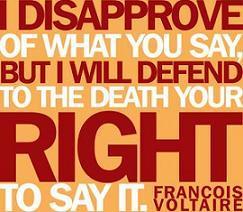date newest »
newest »
 newest »
newest »
message 1:
by
Amanda
(new)
Jun 07, 2014 10:18AM
 Beautifully put. <3
Beautifully put. <3
reply
|
flag
 Awesome sauce! I am a writer of adult fiction who very much enjoys reading YA and just about anything else. I love reading, PERIOD! I don't care who the book was written (intended) for so long as it's an enjoyable story. There is no need to get snobby about it.
Awesome sauce! I am a writer of adult fiction who very much enjoys reading YA and just about anything else. I love reading, PERIOD! I don't care who the book was written (intended) for so long as it's an enjoyable story. There is no need to get snobby about it.Thank you so much for commenting on this article.
 There was a time when Little Women and Ivanhoe were considered literature for children. King Arthur was fodder for boyhood tales for centuries, yet today, literature classes in every major college and university tout these works and many others like them as a mainstay for the highly educated mind. To minimize any written work and limit its value to any age group is narrow minded at best. Will we start slapping the hand of the child who dares to reach beyond their reading age group to broaden their horizons and interests beyond what their structured reading lists say they are supposed to want to read? Or better yet, what they are capable of reading for their age? And why should I as an adult be limited to the droll topics that people like Ms. Graham allow based on my age and experience?
There was a time when Little Women and Ivanhoe were considered literature for children. King Arthur was fodder for boyhood tales for centuries, yet today, literature classes in every major college and university tout these works and many others like them as a mainstay for the highly educated mind. To minimize any written work and limit its value to any age group is narrow minded at best. Will we start slapping the hand of the child who dares to reach beyond their reading age group to broaden their horizons and interests beyond what their structured reading lists say they are supposed to want to read? Or better yet, what they are capable of reading for their age? And why should I as an adult be limited to the droll topics that people like Ms. Graham allow based on my age and experience?As a writer, I push the limits of reality and explore beyond what is possible or even probable; daring to dream the unimaginable. To do so means I must throw off the shackles of the restrictive constraints of this world and explore whatever my heart is drawn to. Whether it is drawn to the Pokey Little Puppy after a particularly hard of work or to the darkened pages of Tolstoy is really none of Ms Graham's affair. I will say, her judgment is rather sad, as is her narrow view. For in taking such a primitive and Puritanical approach to reading or at least in viewing others who do, she cheats herself of many a lovely hour of entertainment and the joy of many a friend whom she might have found comfort in had she not gone out of her way to be so offensive to all who dare to enjoy YA and be over the age of 13.
Stepping off of my soapbox now. Very nicely said btw, Ms. Gaughen. :o)




